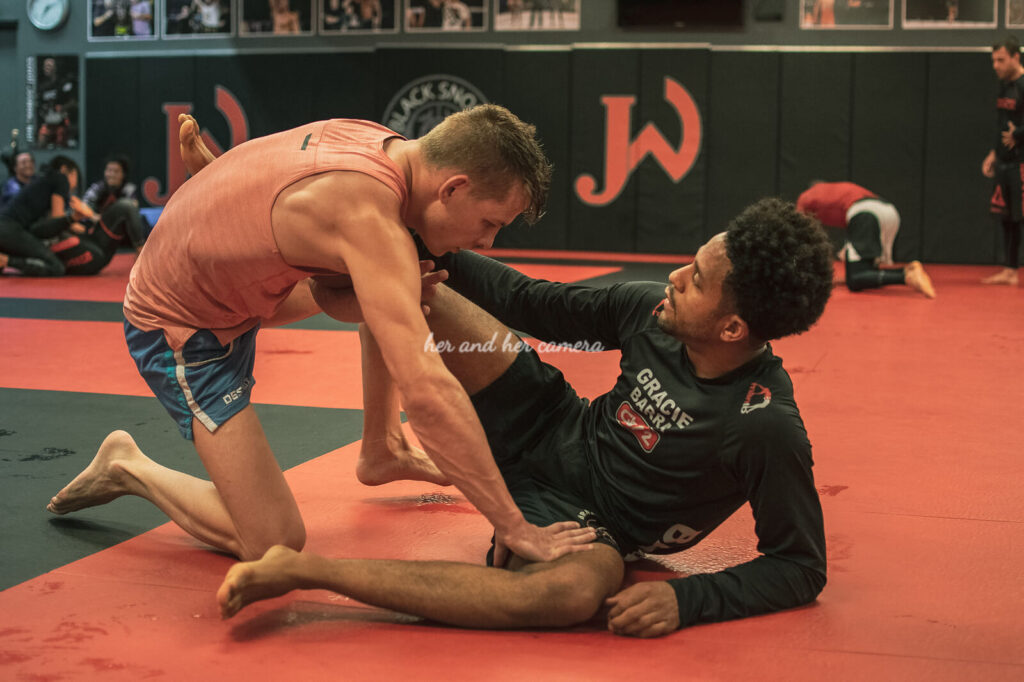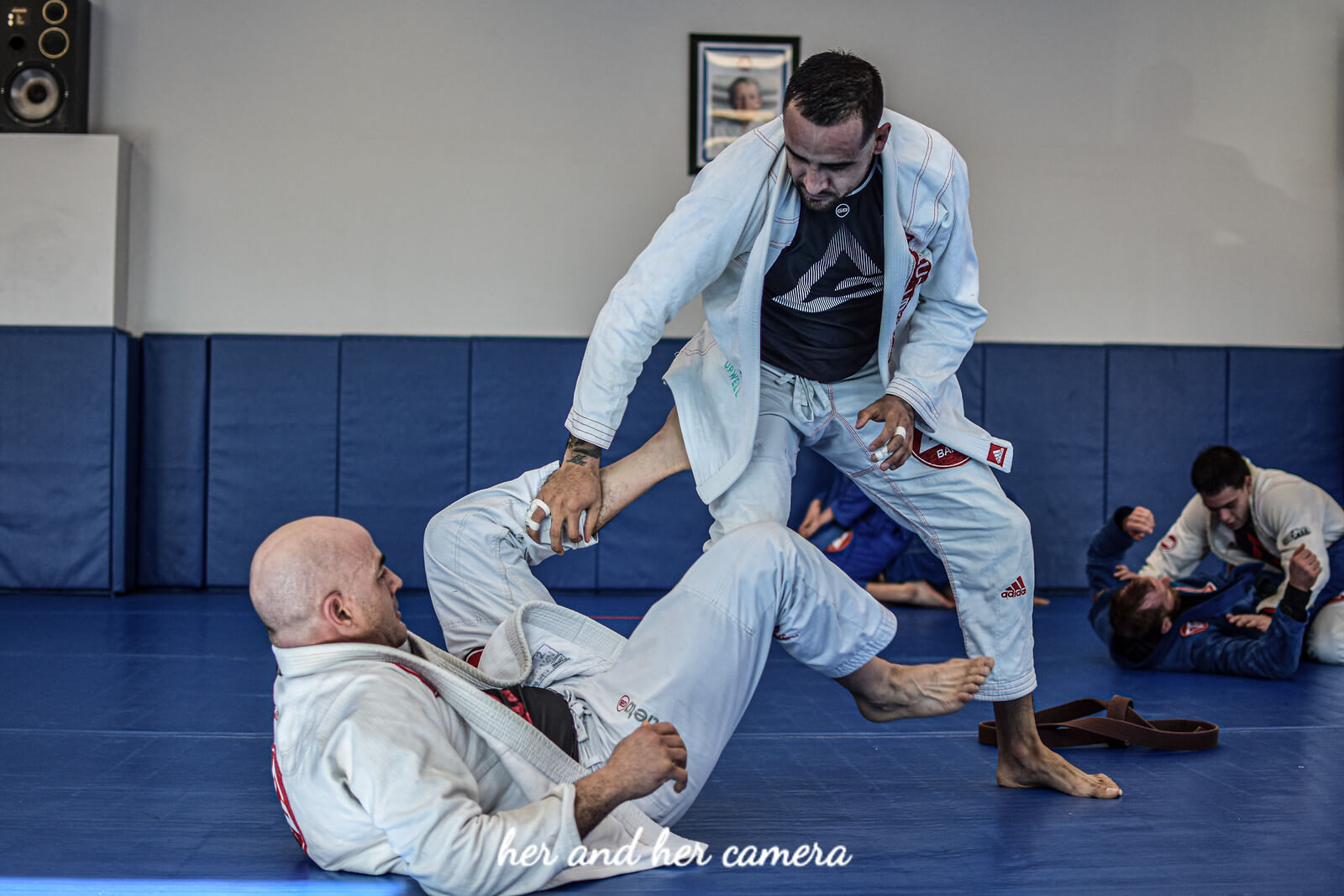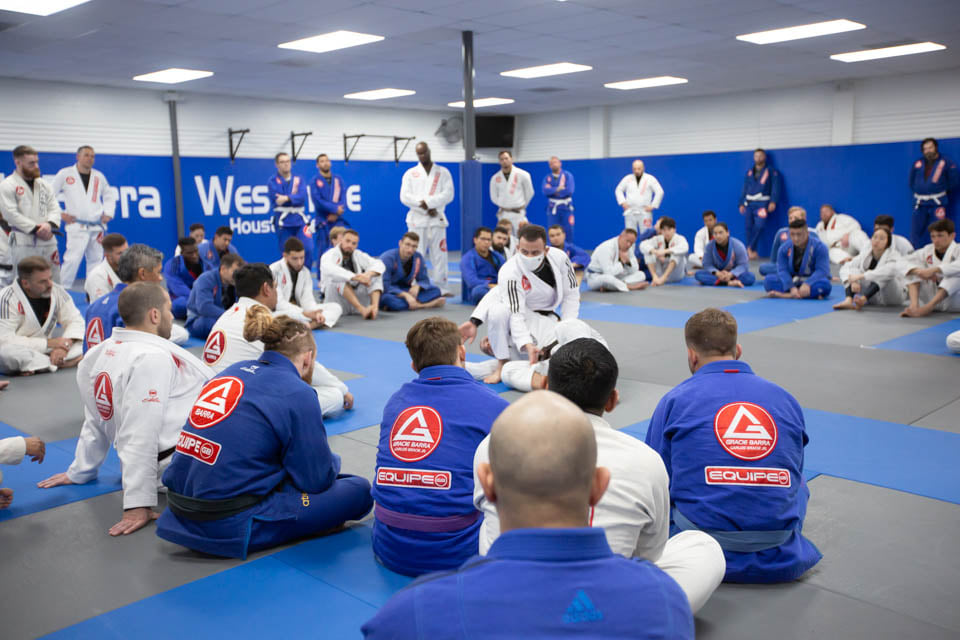Introducing:
Brazilian Jiu-Jitsu transcends mere martial arts practice; it is a powerful tool for personal development. In this article, we will explore how the journey in Jiu-Jitsu contributes to the holistic growth of adults, promoting not only physical skills but also emotional and mental aspects.

Building Personal Discipline:
Jiu-Jitsu demands commitment and consistency. Adults embarking on this journey develop personal discipline by following a training routine, setting goals, and overcoming challenges. This discipline extends beyond the mat, positively influencing other aspects of daily life. Furthermore, the structured nature of Jiu-Jitsu classes fosters accountability and reinforces the importance of commitment and perseverance.
Development of Emotional Resilience:
The challenging nature of Jiu-Jitsu exposes practitioners to adverse situations. Facing defeats and overcoming obstacles helps adults develop emotional resilience. The ability to handle emotions during training reflects in everyday life, fostering a resilient mindset. Moreover, the supportive environment of Jiu-Jitsu academies provides opportunities for practitioners to receive encouragement and learn from setbacks, further strengthening their emotional resilience.
Promotion of Self-Awareness:
Jiu-Jitsu practice encourages self-awareness. Adults learn to understand their strengths, areas for improvement, and how they react under pressure. This self-awareness is crucial for personal development, facilitating continuous growth and self-acceptance. Through reflection and feedback from instructors and training partners, practitioners gain insights into their abilities and areas for growth, fostering a deeper understanding of themselves.
Focus on Continuous Improvement:
Jiu-Jitsu is a journey of constant learning. Adult practitioners cultivate a mindset of continuous improvement, seeking to enhance their skills with each training session. This positive approach permeates other aspects of life, propelling personal growth in various areas. Additionally, the feedback loop inherent in Jiu-Jitsu training encourages practitioners to embrace challenges and view setbacks as opportunities for growth, fostering a resilient and proactive mindset.
Learning Emotional Control:
Conflicts in Jiu-Jitsu demand emotional control. Adult practitioners learn to stay calm in challenging situations, control anxiety, and make rational decisions. This emotional control is valuable not only in martial arts but also in stressful situations in daily life. By practicing mindfulness techniques and developing strategies to manage emotions, practitioners gain valuable skills that can be applied beyond the mat, improving their overall well-being and relationships.
Boosting Self-Confidence:
Mastering skills in Jiu-Jitsu significantly contributes to strengthening self-confidence. Adults who overcome challenges, learn complex techniques, and achieve gradings experience a significant boost in confidence in their abilities, positively influencing self-image. Moreover, the supportive community of fellow practitioners and instructors provides encouragement and validation, reinforcing practitioners’ belief in their capabilities and fostering a sense of belonging and self-worth.

Development of Problem-Solving Skills:
Jiu-Jitsu is a form of solving physical and strategic problems. Adult practitioners enhance problem-solving skills by analyzing complex situations on the mat. This adaptive ability extends to everyday life, empowering them to effectively address challenges. Through constant exposure to varying scenarios and opponents with different styles, practitioners learn to think critically, strategize, and adapt their techniques accordingly. This problem-solving approach becomes ingrained in their mindset, enabling them to approach challenges with creativity and resilience both on and off the mat.
Cultivation of Positive Relationships:
Jiu-Jitsu academies form tight-knit communities. Adults practicing this martial art develop positive relationships based on respect and camaraderie. These social connections contribute to personal development, fostering a supportive environment. By sharing experiences, supporting each other’s progress, and working together toward common goals, practitioners build meaningful connections that enhance their sense of belonging and well-being. These relationships extend beyond the academy, enriching practitioners’ social lives and providing valuable support networks.
Acquisition of Leadership Skills:
The training environment in Jiu-Jitsu provides opportunities for leadership. Advancing practitioners often take on leadership roles by guiding less experienced peers. This dynamic contributes to the development of effective leadership skills. By mentoring others, leading classes, and providing guidance during training, practitioners learn to communicate effectively, inspire confidence, and motivate their peers. These leadership skills are transferable to various aspects of life, including professional settings, community involvement, and personal relationships.
Setting Realistic and Ambitious Goals:
The process of advancing through Jiu-Jitsu gradings involves setting clear goals. Adults practicing the martial art learn to define realistic and ambitious goals, promoting a sense of purpose and direction in their lives outside the mat. Setting and achieving goals in Jiu-Jitsu requires dedication, perseverance, and commitment, traits that translate into success in other areas of life. Whether aiming to earn a higher belt rank, compete in tournaments, or master specific techniques, practitioners learn the importance of goal setting and the satisfaction of achieving milestones through focused effort and determination.
Development of Empathy:
Consistent training with Jiu-Jitsu partners requires empathy. Adult practitioners learn to understand the needs and challenges of others, developing valuable interpersonal skills that translate into healthier and more satisfying relationships. Through collaborative training sessions, practitioners develop empathy by considering their training partners’ perspectives, providing support, and adjusting their approach to accommodate different skill levels and learning styles. This empathy extends beyond the mat, fostering deeper connections and promoting understanding in personal and professional relationships.
Application of Ethical Principles in Daily Life:
Rooted in ethical principles, Jiu-Jitsu promotes integrity and respect. Adults practicing this martial art apply these principles in daily life, positively influencing their personal interactions and contributing to the building of an ethical and collaborative community. By adhering to codes of conduct such as respect for opponents, integrity in competition, and humility in victory and defeat, practitioners exemplify ethical behavior both on and off the mat. These principles guide their actions, promote mutual respect, and foster a culture of inclusivity and support within the Jiu-Jitsu community and beyond.

In Summary:
Brazilian Jiu-Jitsu stands as more than just a martial art; it’s a transformative journey that fosters personal growth and development in adults. Through its rigorous training, practitioners not only improve their physical fitness but also cultivate valuable life skills such as discipline, resilience, and empathy. Whether on the mat or in daily life, the lessons learned in Jiu-Jitsu continue to resonate, shaping individuals into confident, capable, and compassionate human beings.



